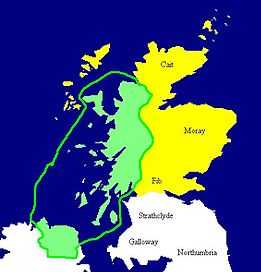736
| Millennium: | 1st millennium |
|---|---|
| Centuries: | 7th century – 8th century – 9th century |
| Decades: | 700s 710s 720s – 730s – 740s 750s 760s |
| Years: | 733 734 735 – 736 – 737 738 739 |
| 736 by topic | |
| Politics | |
| State leaders – Sovereign states | |
| Birth and death categories | |
| Births – Deaths | |
| Establishment and disestablishment categories | |
| Establishments – Disestablishments | |
| Gregorian calendar | 736 DCCXXXVI |
| Ab urbe condita | 1489 |
| Armenian calendar | 185 ԹՎ ՃՁԵ |
| Assyrian calendar | 5486 |
| Bengali calendar | 143 |
| Berber calendar | 1686 |
| Buddhist calendar | 1280 |
| Burmese calendar | 98 |
| Byzantine calendar | 6244–6245 |
| Chinese calendar | 乙亥年 (Wood Pig) 3432 or 3372 — to — 丙子年 (Fire Rat) 3433 or 3373 |
| Coptic calendar | 452–453 |
| Discordian calendar | 1902 |
| Ethiopian calendar | 728–729 |
| Hebrew calendar | 4496–4497 |
| Hindu calendars | |
| - Vikram Samvat | 792–793 |
| - Shaka Samvat | 658–659 |
| - Kali Yuga | 3837–3838 |
| Holocene calendar | 10736 |
| Iranian calendar | 114–115 |
| Islamic calendar | 117–118 |
| Japanese calendar | Tenpyō 8 (天平8年) |
| Julian calendar | 736 DCCXXXVI |
| Korean calendar | 3069 |
| Minguo calendar | 1176 before ROC 民前1176年 |
| Seleucid era | 1047/1048 AG |
| Thai solar calendar | 1278–1279 |
| Wikimedia Commons has media related to 736. |
Year 736 (DCCXXXVI) was a leap year starting on Sunday (link will display the full calendar) of the Julian calendar. The denomination 736 for this year has been used since the early medieval period, when the Anno Domini calendar era became the prevalent method in Europe for naming years.
Events
By place
Europe
- Charles Martel, Merovingian mayor of the palace, forms local alliances with the Burgundians and imposes Frankish domination on Provence. He defeats Muslim forces at Sernhac and Beaucaire in Septimania (Southern France).[1]
- Battle of Nîmes: The Franks under Charles Martel fail to capture Narbonne but devastate most of the other settlements, including Nîmes, Agde, Béziers and Maguelonne, which he views as potential strongholds of the Umayyads.[2]
Britain
- King Æthelbald of Mercia is describe in the Ismere Diploma as ruler (bretwalda) of the Mercians and all the provinces in southern England. He is also named "Rex Britanniae" (king of Britain).[3][4]
- King Óengus I of the Picts invades the neighbouring kingdom of Dál Riata which is subjugated. He takes the fortress of Dunadd, and establishes his rule in Scotland for over two decades.
Asia
- Rōben, scholar-Buddhist monk, invites Shinshō to give lectures on the Avatamsaka Sutra at Kinshōsen-ji (later Tōdai-ji); this event is considered to be the roots of the Kegon school of Buddhism founded in Japan.
Mesoamerica
- Yik'in Chan K'awiil, ruler (ajaw) of the leading Maya city state of Tikal (modern-day Guatemala), conquers rival Calakmul within the northern Petén region of the Yucatán (Southern Mexico).
By topic
Food and drinks
- First documentation of hop cultivation in the Hallertau region of present-day Germany (which is today the most important production centre with about 25% of the worldwide production).[5]
Births
Deaths
- Hugbert, duke of Bavaria
- Muiredach mac Ainbcellaig, king of Dál Riata
- Yamabe no Akahito, Japanese poet
References
- ↑ David Nicolle (2008). Poitiers AD 732, Charles Martel turns the Islamic tide (p. 19). ISBN 978-184603-230-1
- ↑ Riche, Pierre (1993). The Carolingians: A Family Who Forged Europe. University of Pennsylvania Press, p. 45. ISBN 0-8122-1342-4
- ↑ "Anglo-Saxons.net: S 89". Retrieved 27 April 2007.
- ↑ Fletcher, Who's Who, pp. 98–100
- ↑ Sirrine, Robert. J (2009), Sustainable Hop Production in the Great Lakes Region. Michigan State University.
